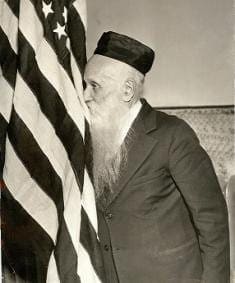The Faces of Today and Yesteryear – Stories of Immigration
 by Barry Fireman
by Barry Fireman
John F. Kennedy wrote an essay entitled “A Nation of Immigrants” for which he was honored by the Anti Defamation League. The year was 1958 and it was the last manuscript he would write before he became president.
If we all look back, we will find our roots in foreign countries. I am a first generation American. Both my parents came from small shtetls in the Soviet Union in the early 1920s where they experienced poverty, anti-Semitic pogroms and a hopeless future fraught with danger had they remained where they were. I can only imagine the horrific events that brought my grandparents to decide to leave the land of their birth and the incredible dangers they would experience as they made their way to America.
My father’s story is chronicled in my book From The Broken Windows. He loved to talk about his life under the Czar and his experiences during the Russian Revolution and the ensuing Civil War. My mother would only cry and leave the room when I asked her for her stories. But she would always wag her finger at me later to tell me to never forget HIAS (Hebrew Immigrant Aid Society) the oldest international migration and refugee resettlement agency in the United States. “Without HIAS we would never have had a chance of getting out of that awful place.” I managed to gather some of her stories from my cousins and from my memories of my grandmother who lived with us until I was 21.
In the old country my grandfather was a bookbinder. He and my grandmother also operated a teahouse where my grandmother surreptitiously served bootleg spirits in demitasse cups. Often they would be visited by “khapers” who were bounty hunters seeking children to be forced into the Czar’s army for 25 years. My grandmother kept a loaded rifle behind the counter, which she brandished when she felt threatened. My older uncles would hide. My youngest uncle would shield my mother who was the baby of the family.
During their escape, one of my uncles was shot and wounded. The bullet creased his forehead. My other uncles nursed his wound during their arduous Atlantic crossing.
My mother was the last of seven children, but only four would survive the ordeal of the pogroms, escape, and travel to America. The quota system in the United States was such that their ship was refused entry and had to leave New York harbor and travel to Halifax, Canada. They finally arrived in Montreal where they would live for several years until they could enter the United States. HIAS was there for them all along the way
As Jews we have been told stories of incredible pain and suffering experienced by those of our people who came here before us. Their courage and sacrifice made it possible for us to live the American dream. Those who remained in Europe were destined to experience the Holocaust.
So what has changed in the world today? We still have genocide. We still have maniacal heads of states who murder their own people just to stay in power. We still have refugees and people struggling to make their way to America. And Emma Lazarus’ words still adorn the pedestal of the Statue of Liberty.
“Give me your tired, your poor,
Your huddled masses yearning to breathe free,
The wretched refuse of your teeming shore.
Send these, the homeless, tempest-tossed to me,
I lift my lamp beside the golden door!”
HIAS Pennsylvania embodies this thought as it continues to exist even though there are not many Jews coming to the United States these days.
So what has changed? What is the difference between what our ancestors faced and what faces today’s immigrant? Think about it. What has changed is the color, the religion, the national origin, the native language, and the customs. So the answer to the question is, “Not very much.”
We are bombarded with daily news stories about both undocumented and legal immigrants who usurp our institutions, obtain free medical care, attend our schools and fill our jails. But how often do we hear stories about those who become educated, find productive jobs, that contribute to the general welfare of our country? Perhaps it’s time for us to hear about them… the immigrants… the future Americans who work hard, pay taxes and benefit society with their ideas, skills, and determination.
Please watch for future articles that will chronicle the stories of the new immigrants sponsored by HIAS Pennsylvania.
Photo submitted by the author, of his great uncle in the 1930’s, shortly after becoming naturalized as an American citizen.


